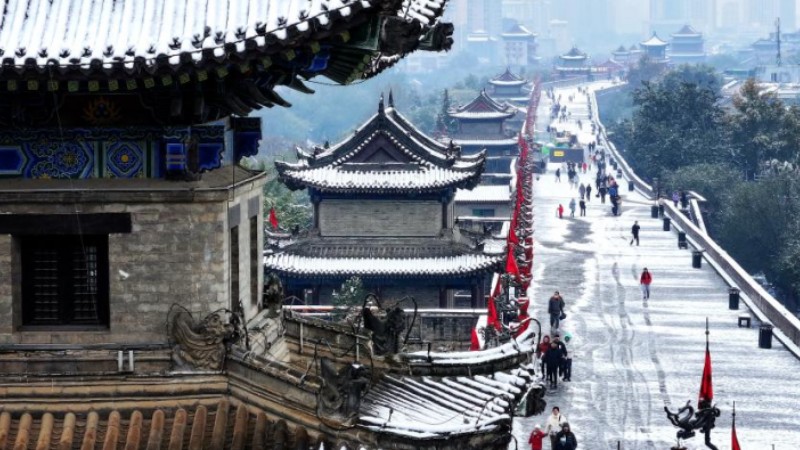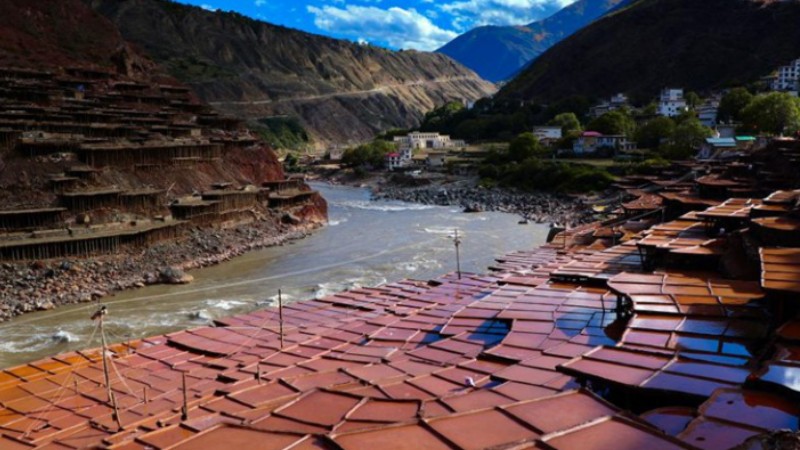UNSC convenes again to call for ceasefire amid escalating Gaza crisis
UNITED NATIONS, Nov. 11 (Xinhua) -- The UN Security Council convened again on Friday to address the Israel-Hamas conflict, focusing on the critically overwhelmed healthcare infrastructure in Gaza. Speakers urged an immediate ceasefire, enhanced aid and lasting solutions.
Tedros Adhanom Ghebreyesus, director-general of the World Health Organization (WHO), said that the health system in Gaza is "on its knees."
The situation on the ground is grim, said the WHO chief, from hospitals conducting operations without anesthesia to the fact that a child is killed every ten minutes.
"Nowhere and no one is safe," he said, adding that medical staff are grappling to try to manage the health needs of 2.3 million people.
Tedros said the best way to show support is by providing what health workers need to save lives. About 63 metric tons of such aid has been sent, but unfettered access is required to reach the civilians who are not responsible for the crisis.
Tedros added that WHO continues to call for a ceasefire. In addition, he called for both sides to respect their obligations under international humanitarian law.
Marwan Jilani, director general of the Palestine Red Crescent Society, provided an overview of recent events, noting people are getting shot at "as we speak," with 20 injured due to direct fire at the Al-Quds Hospital in Gaza City. Thousands are under imminent threat of being killed, he warned on video.
He called on the council to demand an effective and immediate ceasefire, together with emergency aid for northern Gaza.
"Listen to the cries of children soaked in blood," he said, questioning why the world is so indifferent to their lives.
The United Arab Emirates (UAE) called for the meeting, citing "the spiraling health crisis amidst continued attacks on hospitals."
UAE permanent representative to the United Nations, Lana Zaki Nusseibeh, shared stories about some of the people affected by the conflict, such as a medical student called Alaa, whose home was leveled in an Israeli airstrike. The young woman was pulled alive from the rubble, along with the lifeless bodies of her mother, brother and nephew.
"I feel the need to remind the council that, like Alaa, every single one of the 2,650 currently reported as trapped under the rubble are human beings and that more than half of them are children," she said.
The ambassador warned that the world was "witnessing the making of a lost generation of children and youth physically and mentally scarred by these experiences."
Riyad Mansour, permanent observer of the Observer State of Palestine, appealed to the council to "stop the massacre; stop it now."
"The General Assembly resolution must be implemented; the Security Council must echo its calls," he said.
The UN General Assembly adopted a resolution on Oct. 27, calling for an immediate, sustained humanitarian truce leading to the cessation of hostilities between Israel and Hamas.
Mansour said the shocking situation must be addressed as the death toll mounts, recalling that the Council's first meeting on the matter last month occurred when hundreds of Palestinians had been killed. Today, that number has reached 11,000, including 4,500 children.
"I used to come here to say protect my people from war crimes and crimes against humanity. Now I come to call for protection from genocide," he said.
Gilad Erdan, permanent representative of Israel to the United Nations, said senior UN officials were not reflecting the truth of the situation on the ground. "Sadly, they are relaying falsehoods that are completely detached from reality," he said.
Russia's Permanent Representative to the United Nations, Vassily Nebenzia, said the "shocking" briefings from humanitarians and the current situation describe a "catastrophe," with massive destruction of civilian targets.
"In all wars, there are laws," he said, referring to a recent report of strikes against hospitals and mosques in southern Gaza. "Safe zones today simply do not exist in the Gaza Strip."
A prompt ceasefire, not short-term pauses, is the only way to end new casualties and allow aid deliveries. He said the risk of the conflict spilling into the region is high. Enhanced foreign military presence in the zone, specifically the United States, is part of the overall escalation of tensions.
As such, he underlined the need to relaunch the peace process in the Middle East.
"In Gaza, nowhere and no one is safe," said Tedros, speaking again as the meeting came to a close.
"Imagine that you're trapped in that situation," he asked ambassadors.
"That's why we're asking for a ceasefire and unfettered humanitarian access," he said. "And at the same time, of course, we're also asking for the Security Council to do everything for the release of hostages."
On the two-state solution, he said he had long believed the Gaza situation was simply unsustainable.
The WHO chief said apart from being beneficial for a Palestinian State, it is a good solution for Israel.
He added that he had been glad to hear many in the council chamber stressing the importance of a two-state solution as a "long-term solution."
Photos
Related Stories
- EU calls for "pauses" in hostilities, humanitarian corridors in Gaza
- Collapse of healthcare system adds to Gaza's suffering
- Egyptian FM says Israel's attacks on Gaza beyond legitimate self-defense
- Feature: Child survivors of Gaza conflict in dire need of psychological support
- Israel "willing" to pause fighting in Gaza if Hamas releases hostages: source
Copyright © 2023 People's Daily Online. All Rights Reserved.









